Monthly thematic spotlights
Human Rights 75 Initiative
Each month in 2023, we placed a spotlight on a wide range of human rights issues, enshrined in the Universal Declaration, in need of concrete and urgent action from States and other duty bearers.
- January: Arbitrary detention for exercising human rights
- February: Care and support systems
- March: Racial justice
- April: Human rights enhancing economy
- May: Offline and online civic space and human rights defenders
- June: Women’s participation in public and political life
- July: Prevention and peace
- August: Justice
- September: Social protection, sustainable development and the right to development
- October: Business and human rights
- November: Climate change/environment
- December: Human rights education
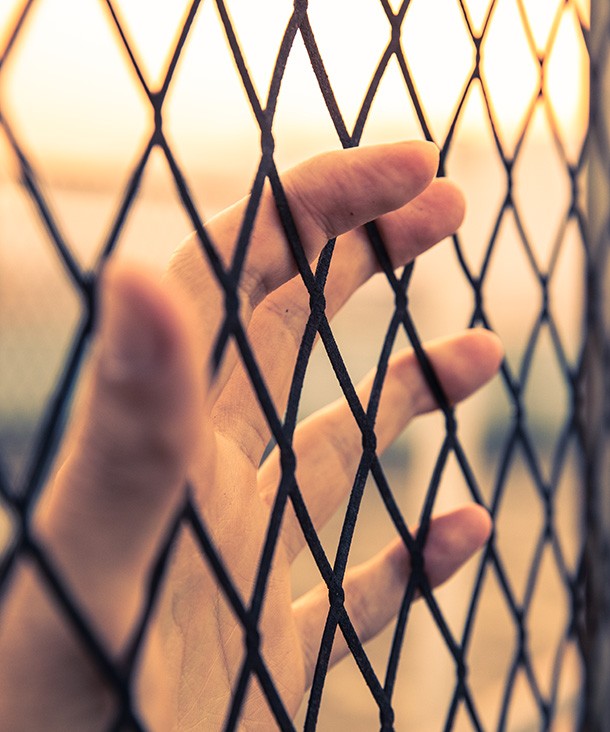
January
Arbitrary detention for exercising human rights
The right to liberty is enshrined in international human rights law. Yet, detention is often used to silence critical voices around the globe. Environmental defenders, climate activists, people calling out discrimination and fighting for equality, those speaking up against abuses and corruption, journalists jailed for doing their essential work, defenders of migrants’ rights and trade unionists seeking to improve labour standards languish in detention facilities, sometimes for long periods – imprisoned for exercising their human rights.
The basics
Human Rights 75
Connect
Expert: sustained detention is a "dark stain on our collective conscience"
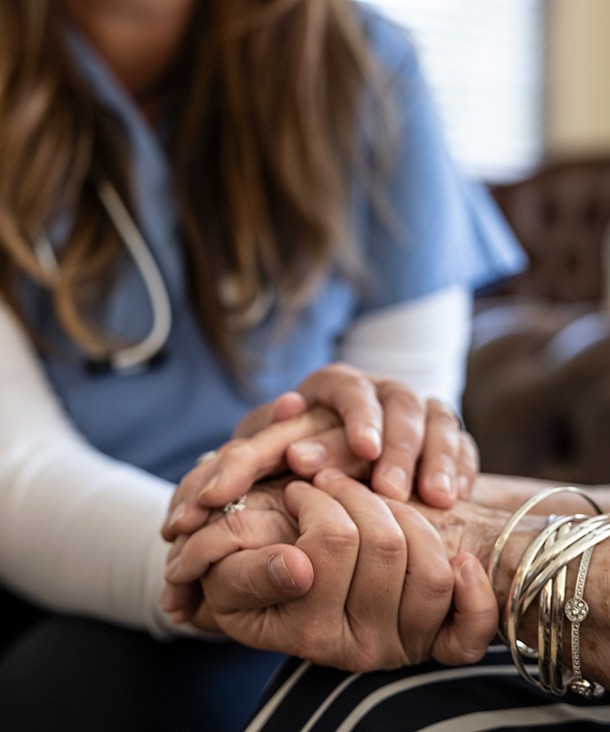
February
Care and support systems
For too long, we’ve relied on women and girls to provide care to sustain families, communities, and societies. At the same time, older people, persons with disabilities and children, are seen merely as passive receivers of care. Their rights, both as caregivers and care receivers, have been neglected. The COVID-19 pandemic has proven that we need to transform our support and care systems. All of us need support and care that enable us to participate in society, and to live in dignity and with choice. Rights-based support and care systems, that are gender, disability, and age responsive, are a key lever for achieving sustainable development.
The basics
Inclusion of persons with disabilities
Human Rights 75
UN Human Rights Chief Volker Türk calls to transform care and support systems
ASG IIlze Brands Kehris calls for human rights-based care and support
Connect
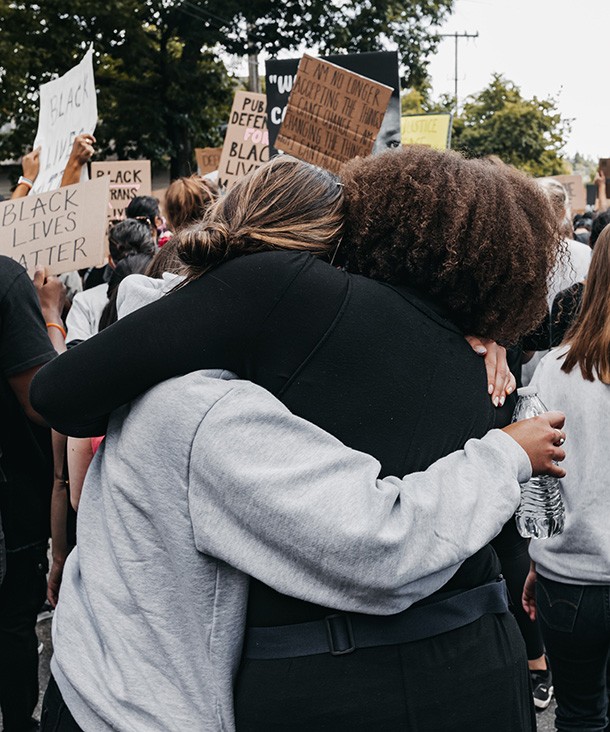
March
Racial justice
Seventy-five years ago, article 2 of the Universal Declaration of Human Rights affirmed the equal enjoyment for all of all human rights, without distinction of any kind, including race and colour. Yet, still today, racism, often rooted in the legacies of enslavement and colonialism, continues to affect the human rights of countless people, and its contemporary forms are present both online and offline. Racism and racial discrimination harm everyone, and undermine development, peace, democracy and the rule of law. No country is free of racism and everyone – States, civil society and youth - must play their role in combating it.
The basics
Racism, xenophobia and intolerance
Durban Declaration and Programme of Action
Learn, Speak Up, Act! #FightRacism
Human Rights 75
Concrete action needed to end racial discrimination – UN Human Rights Chief
Connect
We have to figure out how to dismantle the monster
Video: The Sharpeville Massacre - standing up against racism
Photo credit: Duncan Shaffer
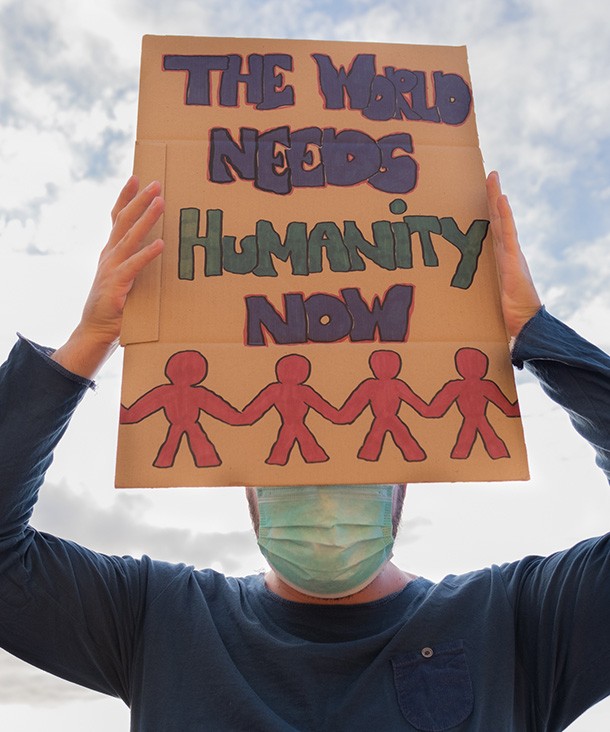
April
Human rights economy
As UN Secretary-General António Guterres has said, the current moment calls into question many of the economic concepts and models that inform current policies. The current economic model fails to provide prosperity for all, as can be seen by rising levels of poverty as well as growing inequalities within and among countries. In a human rights economy, economic policies, investment decisions, consumer choices and business models are guided by human rights, and the integration of human rights at each level in turn measurably enhances outcomes for all. A ‘human rights economy’ places people and the planet at the heart of policymaking. Adopting a human rights economy is crucial to achieve the 2030 Agenda for Sustainable Development.
The basics
Türk’s call for a human rights economy
Human Rights 75
Statement by UN Human Rights Chief on Human Rights Economy
Building economies that place people’s human rights at the center
Connect
UNESCO and OHCHR joint call for the establishment of university chairs on the Human Rights Economy
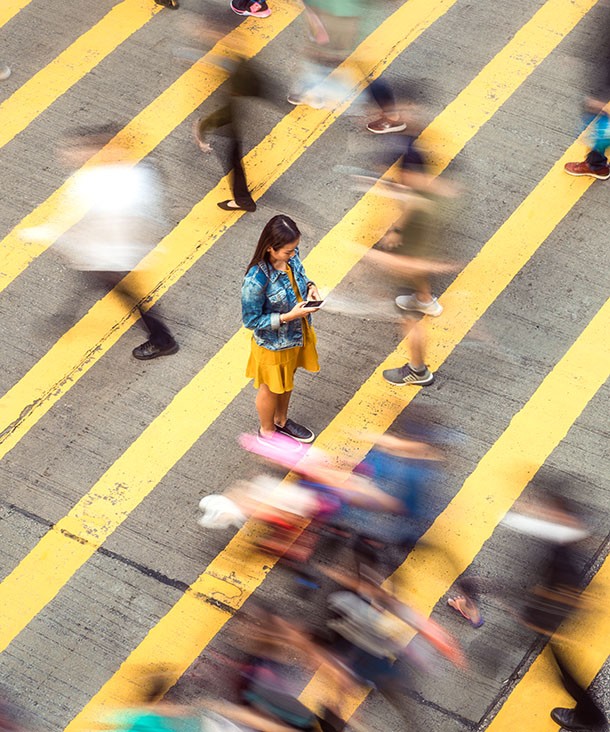
May
Offline and online civic space and human rights defenders
Hearing the voices of the multitude of communities and people in our societies – and ensuring they can shape decisions about their lives and their futures is key to ensure we use all of humanity’s talents and creativity for overcoming the challenges we collectively face – from climate change to increasing inequalities; from violence to growing lack of trust in institutions. New technologies, such as the internet and social media, have expanded the space for a wide range of people to speak up and reach out. At the same time, it has generated new risks in terms of censorship, privacy infringements and online threats and attacks. Preserving and expanding the space in which people can contribute to their societies is at the core of the mandate of UN Human Rights.
The basics
Civic space and human rights defenders
Digital space and human rights
Freedom of expression and opinion
Human Rights 75
UN Rights Chief issues call to protect and expand civic space
Connect
Shaping digital technologies that empower people to build their lives
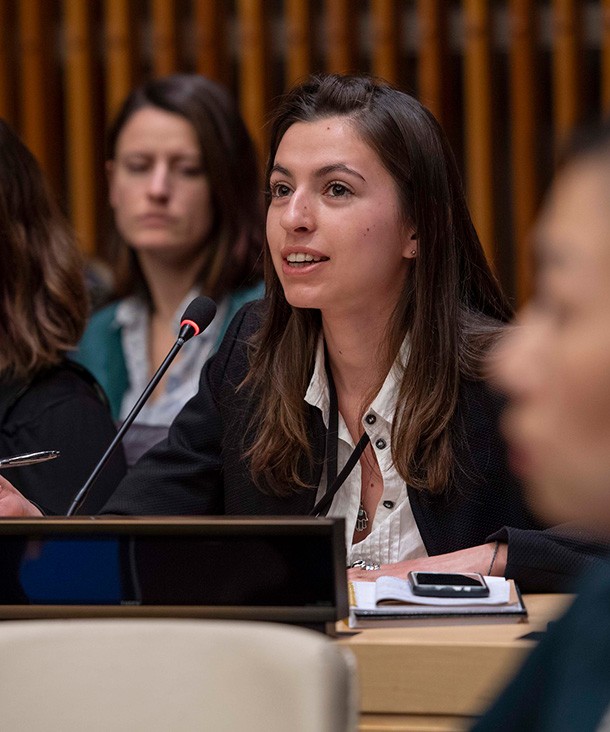
June
Women’s participation in public and political life
Women's equal and meaningful participation in decision-making is not only a question of rights, justice, and democracy but represents a necessary condition for women's rights to be respected and women’s interests to shape public decisions. Only with the active participation of women and the incorporation of women's perspectives and lived experiences at all levels of decision-making, the goals of equality, sustainable development and peace will be achieved.
The basics
Gender equality and women’s rights
Volker Türk, International Gender Champion
Human Rights 75
HC calls for equal and meaningful participation
Connect
HC: The digital space must undergo a feminist revolution
Human rights ensure all spaces are accessible to women in all their diversity
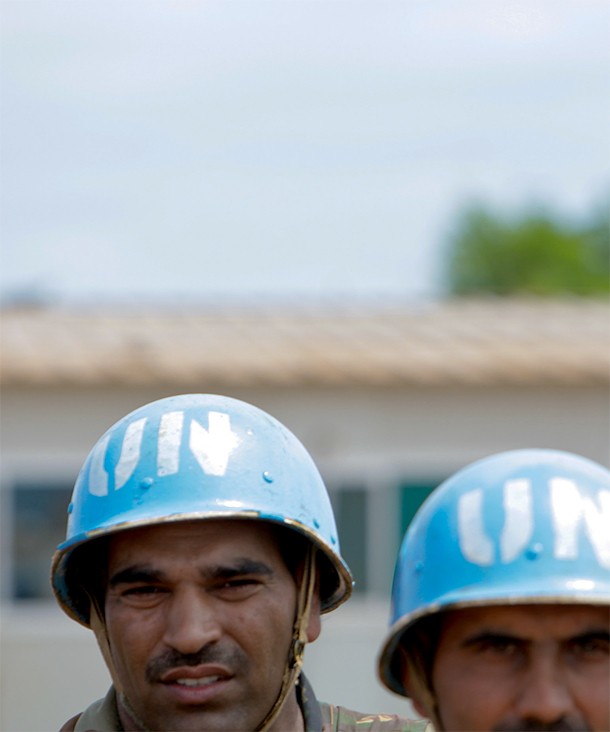
July
Human rights, prevention and peace
Human rights are at the heart of the United Nations Charter because the drafters knew the best way to prevent another world war was to address the factors that had made the Second World War possible. The Universal Declaration of Human Rights is the blueprint to address the root causes of conflict. The rights set out in it include rights that help safeguard participation, liberty and the rule of law and stop oppression and totalitarianism, as well as the protection of people’s lives, livelihoods, welfare and development.
The basics
Preventing human rights violations
Human rights, peacebuilding and sustaining peace
Human Rights 75
Human rights will build peace, Türk tells Security Council
UDHR at 75: a conversation with the High Commissioner
Connect
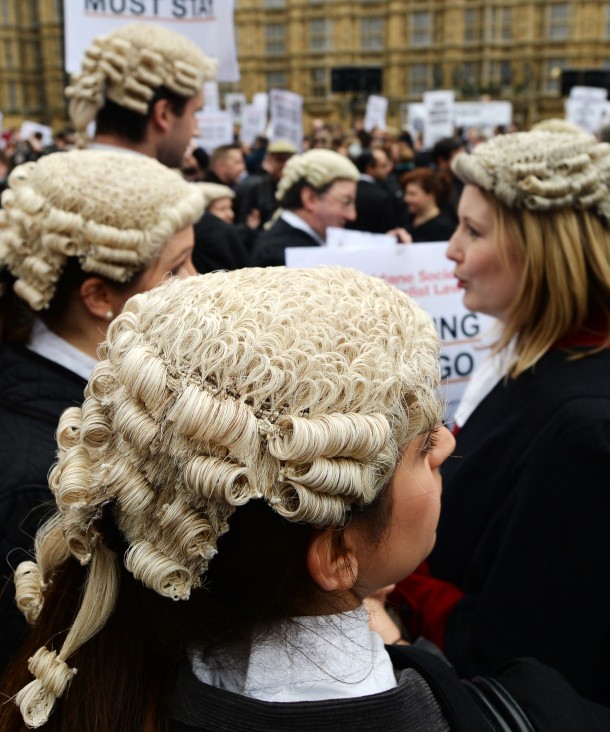
August
Justice
The Universal Declaration states in its first paragraph that the recognition of the inherent dignity and of the equal and inalienable rights of all members of the human family is the foundation for freedom, justice and peace in the world. Throughout its 75 years, the Universal Declaration has helped many people find justice – by changing laws and practices and providing opportunities for people to claim their rights. However, countless others are still seeking justice. Injustice and impunity affect not only those directly concerned – they affect society as a whole, undermining the rule of law, sustainable development and peace and security. Let’s take action today to invest in justice and make the Universal Declaration a reality for all!
The basics
Administration of justice and law enforcement
Democracy, right to participate and the electoral process
Transitional justice and post-conflict peacekeeping
New Vision of the Secretary-General for the Rule of Law
Human rights 75
UN Human Rights Chief’s call to States to reinvigorate access to justice for all
Volker Türk’s open letter to UN Member States (PDF)
Connect
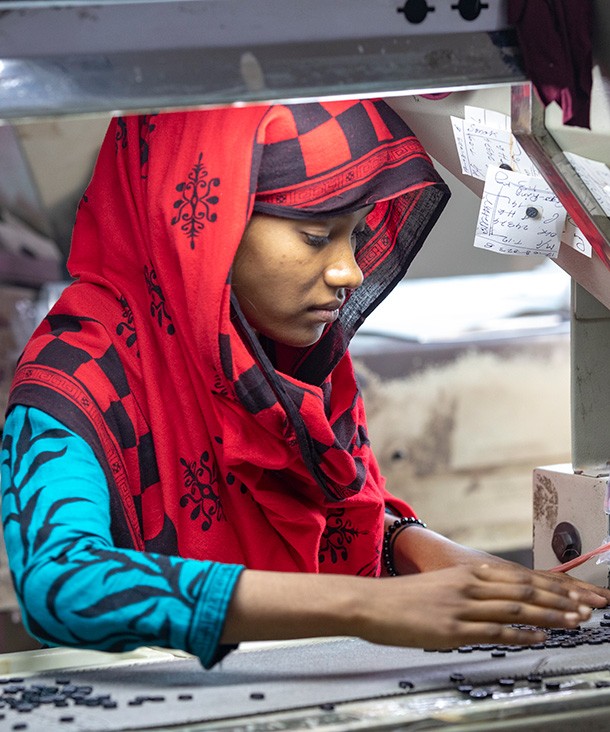
October
Business and human rights
Business enterprises are a major source of investment, innovation, and development and can be a major driver in achieving Sustainable Development Goals. At the same time, economic activity can also pose significant risks to human rights. The United Nations Guiding Principles on Business and Human Rights (UNGP) was developed to clarify the relationship between business and human rights and has become the authoritative global framework to prevent and mitigate human rights risks relating to business. Anchored in international human rights law, the UNGPs reiterate and elaborate on States’ obligations to protect against human rights abuse by businesses and ensure that victims of business-related abuse have access to an effective remedy.
The basics
UN Guiding Principles on Business and Human Rights
Our work in Business & Human Rights
Human Rights 75
Developing safer digital technologies for all
Promoting sustainable and inclusive growth in business
Connect
Working Group on Business and Human Rights
12th United Nations Forum on Business and Human Rights
Photo credit: Ahmed Salahuddin via Reuters Connect
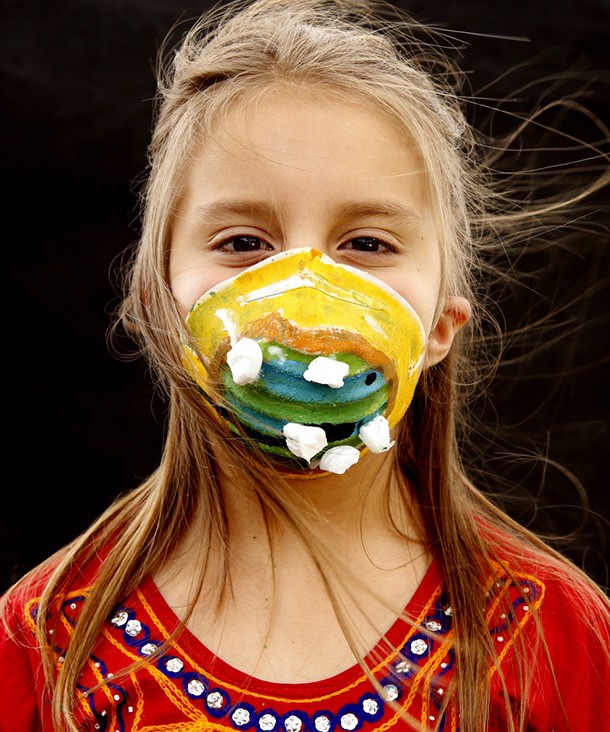
November
Climate change and the environment
Tens of millions of people displaced by climate and weather-related disasters each year, pollution leading to 1 in 6 deaths per year, mass extinction and ecosystem loss – these are but some elements of the environmental crises that shape our present-day reality. Without decisive action, things will get worse. Human rights, including the right to a clean, healthy, and sustainable environment, offer a roadmap for preventing and remediating the harms caused by the triple planetary crisis. This means, protecting environmental human rights defenders, holding those responsible for environmental harms to account, mobilizing resources for rights-based environmental action, and empowering rights-holders, including Indigenous Peoples, women, young people, local communities, and peasants to exercise their rights to participation, access to information and access to justice in environmental matters.
The basics
Climate change and environment
What is the Right to a Healthy Environment? [Infonote]
English | Español
A/HRC/37/59: Framework Principles
Special Rapporteur on Human Rights and the Environment
Special Rapporteur on climate change
Human rights 75
Volker Türk’s Open Letter for COP28 (PDF)
Volker Türk – Climate Rights, Frontline People and States (video)
Connect
Link between humans and the environment must be preserved
“Young people have power” Climate activist Saoirse Exton
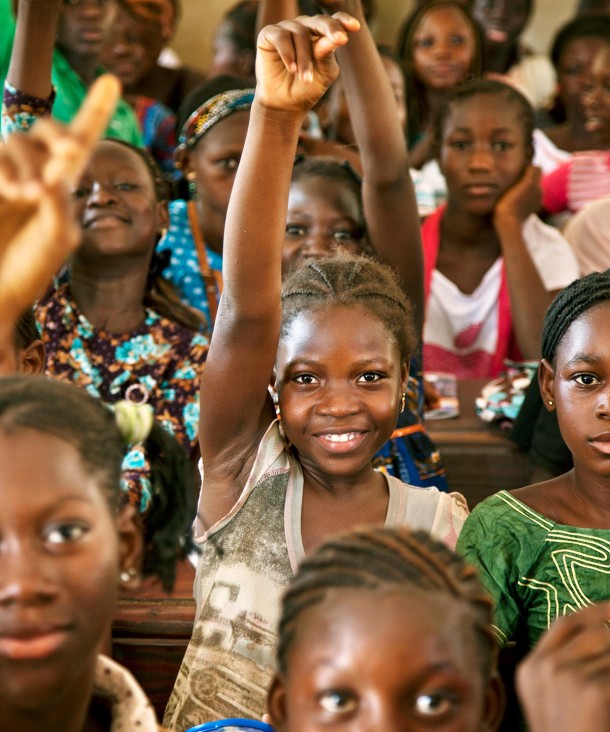
December
Human rights education
Human rights can only be achieved through an informed and continued demand by people for their protection. Human rights education promotes values, beliefs and attitudes that encourage all individuals to uphold their own rights and those of others. It develops an understanding of everyone's common responsibility to make human rights a reality in each community. Human rights education constitutes an essential contribution to the long-term prevention of human rights abuses and represents an important investment in the endeavour to achieve a just society in which all human rights of all persons are valued and respected.
In view of the important role of youth in promoting and protecting human rights, the international community has decided to focus human rights education activities for the period 2020-2024 on human rights education for youth in the context of the World Programme for Human Rights Education.
The basics
World Programme for Human Rights Education (2005-ongoing)
United Nations Declaration on Human Rights Education and Training
The Right to Human Rights Education
Human Rights Education and Training Materials and Resources
Human Rights 75
Statement by Volker Türk, Human Rights Chief, at the Global Forum on Human Rights Education
Türk calls for more human rights education to build “just, peaceful and sustainable world”
Changemakers: Stories of Young Human Rights Educators | Full Documentary
Connect
Database on Human Rights Education and Training
From student to human rights defender: the power of human rights education
Standing up for human rights at Swiss Scouts National Jamboree
Student study shows human rights education helps conflict prevention

September
Social protection, sustainable development and the right to development
In the wake of the COVID-19 pandemic, the climate emergency and other crises, global poverty has increased for the first time in over 20 years. Socio-economic inequalities within and among countries have deepened, with millions pushed deeper into poverty and more countries struggling under debt distress. Much of the progress in achieving the 2030 Agenda for Sustainable Development has been halted or erased. Social protection, the right to development and achieving the Sustainable Development Goals are key to eradicating poverty, reducing inequalities and making sure we leave no one behind. The Universal Declaration of Human Rights provides for the right to social security and the right to development and is the cornerstone of the Agenda for Sustainable Development.
The basics
OHCHR and the right to social security
OHCHR and the right to development
OHCHR and the 2030 Agenda for Sustainable Development
Declaration on the Right to Development
Poverty, the right to food and social protection
Human Rights 75
Short stories on social protection
Event: Discussion on Social Protection, Sustainable Development, and the Right to Development
Connect
Human rights are key to ensuring no one is left behind
In Paraguay, social security creates safety net and builds rights for all
Human rights measures can rescue the SDGs, said High Commissioner Türk
ASG Brands Kehris statement on human rights and sustainable development
Statement by UN Human Rights Chief on human rights economy